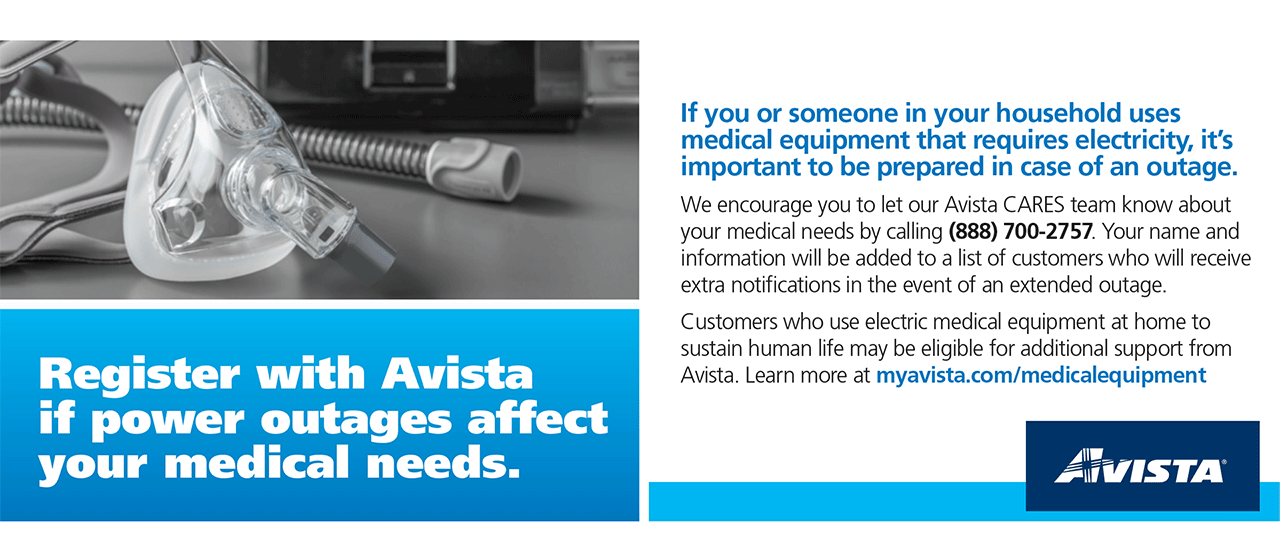Preparedness Information
Build an Emergency Kit
During/After an emergency, you may need to survive on your own for several days. Being prepared means having your own food, water and other supplies to last for at least 72 hours. An Emergency Kit is a collection of basic items your household may need in the event of an emergency.
To assemble your kit, store items in airtight plastic bags (Ziplock bags, for instance) and put your entire disaster supplies kit in one or two easy-to-carry containers such as plastic bins or a duffel bag. A basic emergency supply kit could include the following recommended items:
- Water (one gallon per person per day for at least three days, for drinking and sanitation)
- Food (at least a three-day supply of non-perishable food)
- Battery-powered or hand crank radio
- Flashlight
- First aid kit
- Extra batteries
- Whistle (to signal for help)
- Dust mask (to help filter contaminated air)
- Moist towelettes, garbage bags and zip ties (for personal sanitation)
- Wrench, pliers, multitool (to turn off utilities)
- Manual can opener (for food)
- Local maps
- Cell phone with chargers
- Pet food
For more information on building an emergency kit, visit:
- https://www.ready.gov/kit
- https://www.redcross.org/get-help/how-to-prepare-for-emergencies/survival-kit-supplies.html
- For more resources related to building an emergency kit or a go bag, visit the "publications" page
Build a Go Bag
Similar to an emergency kit, a Go Bag is a kit of emergency supplies, meant for on the go. Go bags can be stored in your vehicle, at your office, and at your home. The most common storage location for a Go Bag is in a car, truck, RV or other motor-vehicle, so that the contents are ready and available during emergencies and disasters. Go bags are often filled with the same items as an emergency kit, but may contain less of each type of item, so that the bag is not too heavy.
Go Bags can be purchased pre-made, or you can make your own. The type of bag used should fit your needs, and can be a backpack, hiking pack, duffle bag, rolling backpack or a small piece of rolling luggage. The most important part is that the items inside the Go Bag meet your family and pet's needs. Some of the most common items for a Go Bag include:
- Bottled water, protein bars, granola bars, and other non-perishable / healthy snacks
- First aid kit and medicine (Advil, triple antibiotic cream, etc.)
- Flashlight and batteries
- Cellphone charger
- Wet wipes / baby wipes
- A multitool
- Glowsticks
- Disposable gloves (nitrile or latex)
Make a Plan
Help keep your family safe by developing a family emergency plan so you are prepared for whatever comes your way. It is essential to have an emergency plan and assemble a reliable network of support in preparation for a potential crisis. Planning for the unexpected begins with the whole family talking about what to do in during an emergency or disaster. While planning for a disaster can seem intimidating or scary, it is important to do so in a way that is inclusive of children and the elderly. The best way to avoid anxiety during the planning process is to take a calm approach and make it a family friendly activity. For planning resources that are kid-centric, visit the publications page
Plan for the Specific Needs in Your Household
Tailor your plans and kit/bag supplies to your specific daily living needs. Discuss your needs and responsibilities and how people in the network can assist each other with communication, care of children, business, pets or specific needs like operating medical equipment. Create your own personal network for specific areas where you need assistance.
For more information about making a plan, visit https://www.ready.gov/plan
Contact Us
If you have questions or comments, please contact:
Sarah Nuss
Director of Emergency Management, City of Spokane
snuss@spokanecity.org

